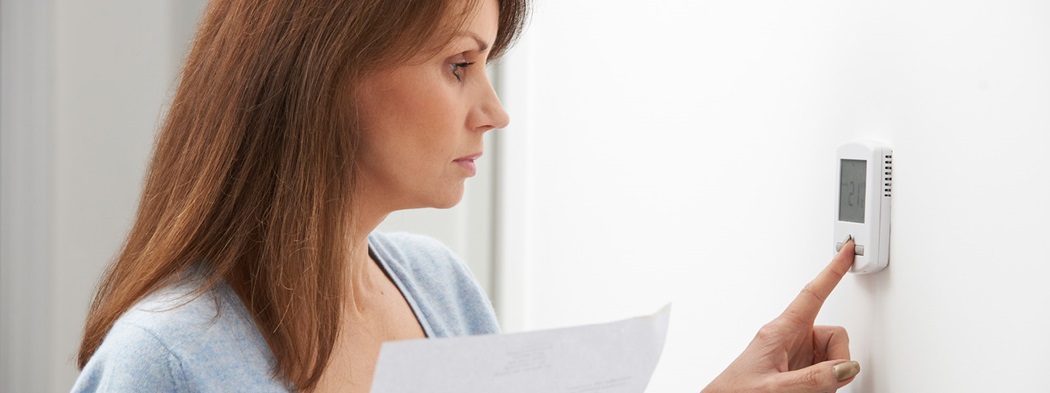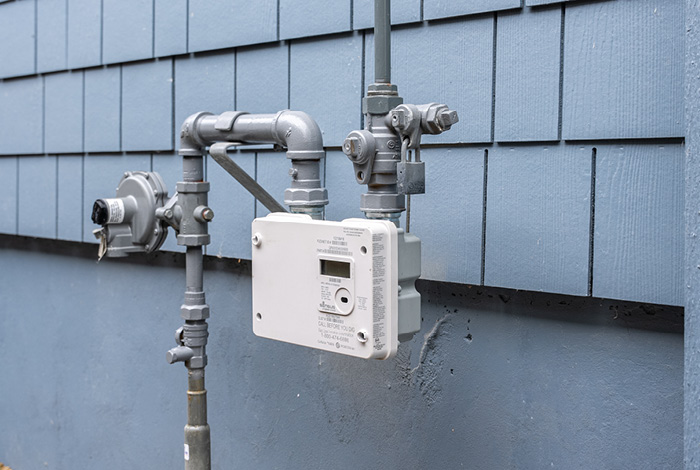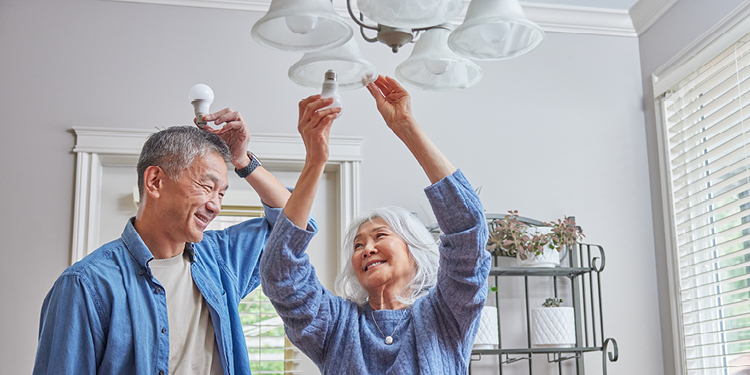5 furnace flops and when to fix them or upgrade your heating system
September 16, 2024
Just like us, appliances need annual checkups too. You want to make sure they are in good working order before the cooler months. Annual servicing helps maintain the life expectancy of your gas appliances and helps to ensure they’re operating safely and efficiently. Additionally, many appliance manufacturers require regular servicing to maintain appliance warranties.
Why should I maintain my furnace?
Annual maintenance could help make sure your appliances are operating safely and at optimal performance. A licensed gas contractor will properly inspect the safety controls and make sure the appliances are venting properly. Plus, you could get up to $150 in rebates for having your gas appliances serviced between June 1, 2024, and June 30, 2025.
But what should you do on those other 364 days of the year if your furnace acts up between annual checkups? We’ve put together a deep dive on five times your furnace may need a little troubleshooting, when you should call a contractor and if it may simply be time for an upgrade.
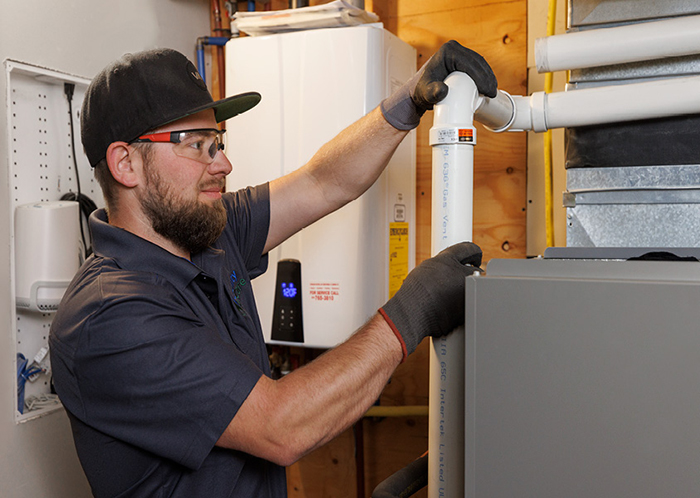
1. What should I do if my furnace doesn’t ignite?
There are a few items to check off the list if your furnace won’t start. To find out more, we connected with Erica Gugay, Conservation and Energy Management program manager here at FortisBC. She says the first item on that checklist is your thermostat. Specifically, look at the settings of your thermostat. If it’s not set correctly, this could answer why your furnace is not igniting. If you have a digital, connected thermostat, you should ensure also that its batteries are not dead. “It’s such an easy fix but one that is often overlooked,” she added.
From there, Erica set out the rest of the questions to answer:
- Switch: Is the main furnace switch on?
- Electric panel: Have you blown the fuse connected to your furnace?
- Furnace doors: Are these and other access panels all closed?
- Air filter: Is this free of dust and debris and/or when was the last time it was replaced? Check your filter at least every three months and replace or clean it regularly.
It’s time to contact a professional if none of these checks answer why your furnace is not turning on or if you are unsure how to fix them. A licensed contractor can work with you to see if servicing will do the trick or it’s time for a replacement. We’ve got rebates on dual fuel heating systems, which combine a new electric heat pump and a new high-efficiency gas furnace1, if that’s the case.
In the meantime, these are some areas that a contractor may check:
- Vents: Are all the vents, registers, return air grills open and free of obstruction?
- Pilot light: Is this lit?

2. What should I do if my furnace smells?
To answer this question, we must first caution that not all smells are created equal.
If that smell is rotten eggs, it should not be taken lightly as it may be gas. If your furnace smells like boiled eggs that have been left in your lunch bag for a few days, it’s a signal to go outside and call the FortisBC Emergency Line at 1-800-663-9911 (24 hours) or 911.
There are a number of other smells, though, that signal it’s time to call a licensed contractor and explore other home heating systems.
- Dusty odour: If you live in a milder climate like the Lower Mainland or Vancouver Island, your furnace is likely not getting a lot of action until later in the heating season. This means, when you fire it up again in the fall or even winter, the dust that has built up over the summer will smell like it’s burning. You have nothing to worry about if that smell dissipates in a few hours. If it persists, however, contact a licensed contractor.
- Musty odour: The presence of a musty odour could indicate a buildup of mould and mildew, which aren’t exactly aromatherapeutic. This buildup could be caused by moisture in your home heating system. Contact a licensed contractor if you are experiencing this.
- Material odour: If the smell is giving off the essence of the materials that make up the furnace itself—burning electrical wires, plastics, metals or chemicals for example—this could be a clue that it’s overheating or those materials are malfunctioning. It’s also time to contact a licensed contractor.
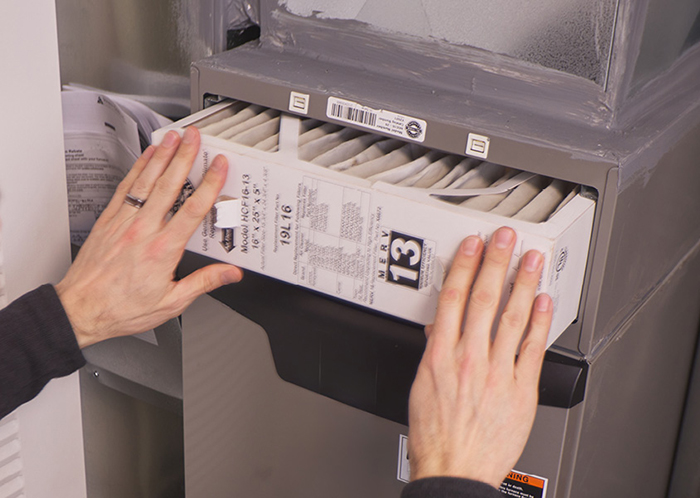
3. What should I do if my furnace doesn’t turn off
Here’s what you need to know if you are experiencing a furnace that is constantly running. Firstly, it may just be how your furnace works. A single-stage furnace is the most common type of this appliance and features no middle ground between being on or off. If you have this type of furnace and it doesn’t appear to ever stop running, it could be the sign of an issue. Work with a licensed contractor to see what type of furnace you have, if yours just needs a little TLC or if it’s time for a replacement.
That same contractor can also check to see, if you have a different type of furnace than a single-stage, where yours is operating within a spectrum. That contractor may also check to see if any internal components are malfunctioning or if you have leaky ductwork that is allowing air to escape.
You may want to troubleshoot these areas in the meantime:
- Thermostat: It may be set wrong or malfunctioning. Double check its settings and that it’s working properly then upgrade your device if needed.
- Air filter: It could require you to do a deep clean of it or install a new one.

4. What should I do if my furnace is making unusual noises?
While all furnaces have some sort of sound to them, certain noises may be cause for concern. If your furnace has a constant hum then that is actually a good thing. It should be music to your ears. What aren’t dulcet tones, though, are banging, rattling or squeaking noises. All these, according to Erica, are noises that signal it’s time to contact a licensed contractor.
Strange noises such as rattling, squealing, or banging should be addressed. These sounds can indicate loose or damaged components, such as belts, motors or fans. Ignoring these sounds can lead to further damage if not addressed promptly. Older furnaces are naturally louder than newer furnaces due to updated technology. Invite a licensed contractor over to have a listen for themselves. They can assess if you need your furnace repaired or work with them on assessing if a new system is right for you.
5. What should I do if my furnace is blowing cold air?
Erica pointed out that this is notable. “This is actually not something that a lot of customers experience. But, since it is something that is strange, you should get someone to look at it because this is abnormal.” Work with a contractor if you are experiencing cold air. Here are some additional checks to do in the meantime.
- Is your gas flowing? It could be an issue with your gas connection. Have a licensed gas contractor, or leak inspector, inspect your buried gas lines to ensure they’re functioning safely and efficiently. This could be done at the same time as you’re having regular maintenance on your gas appliances.
- Is your furnace too hot? Ironically, the cold air may be because your furnace has overheated. Your home heating system has a shutdown built in for good reason: to prevent dangerous outcomes like fires. If your furnace appears to have shut down, contact a licensed contractor.
- Is your air filter clean? A clogged or dirty air filter could lead to cold air as it prevents the cosy stuff from making its way throughout your home.
- Is your ductwork leaky? Your furnace may actually be running smoothly and producing warm air that doesn’t make it throughout the home so rooms seem colder. Contact a licensed contractor to have a look.
We’re here to help
We’re here for you no matter if you need to maintain or upgrade how you heat your home. If maintenance is all your furnace needs then we’ve got rebates to help offset some of the costs for that. If that regular maintenance isn’t cutting it, particularly if your furnace is over ten years old, we’ve got rebates on dual fuel heating systems. You can also contact someone from our directory of licensed contractors, call us at 1-855-909-2329 or email [email protected].
1A gas furnace that operates at 95 per cent efficiency or above.
